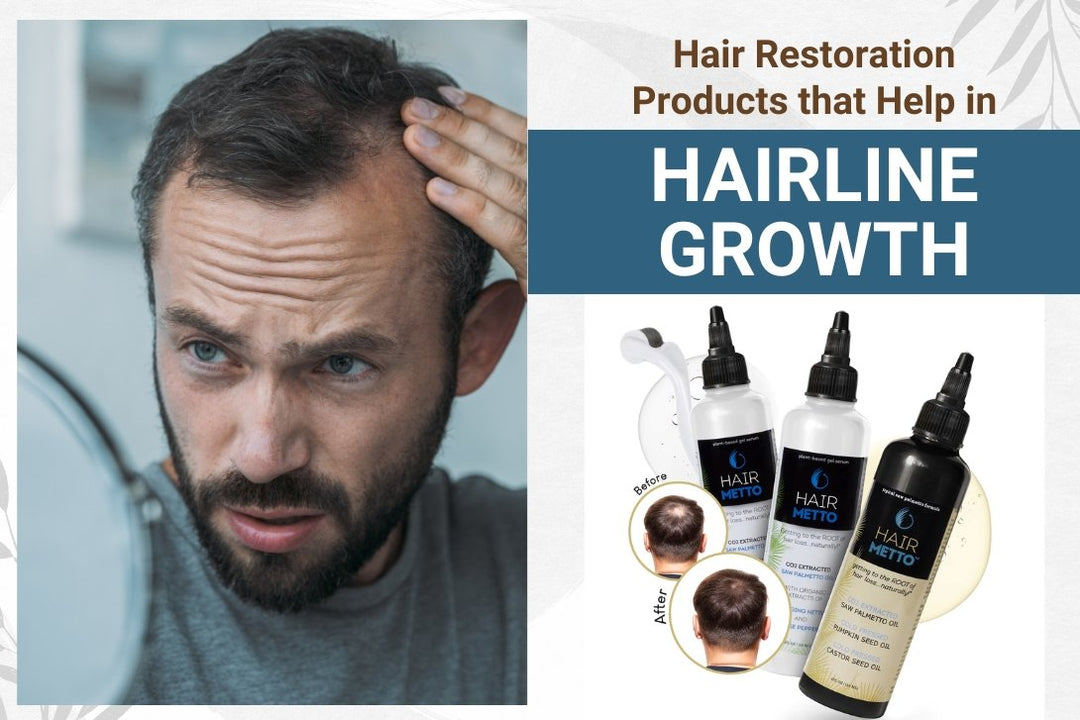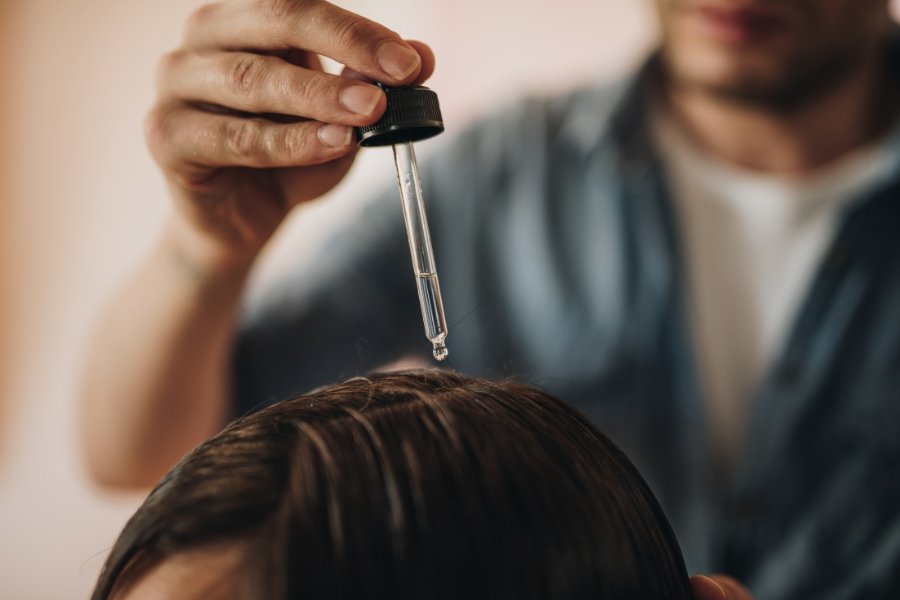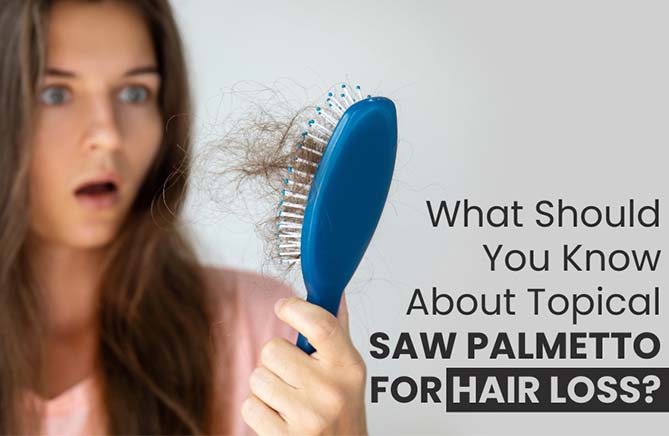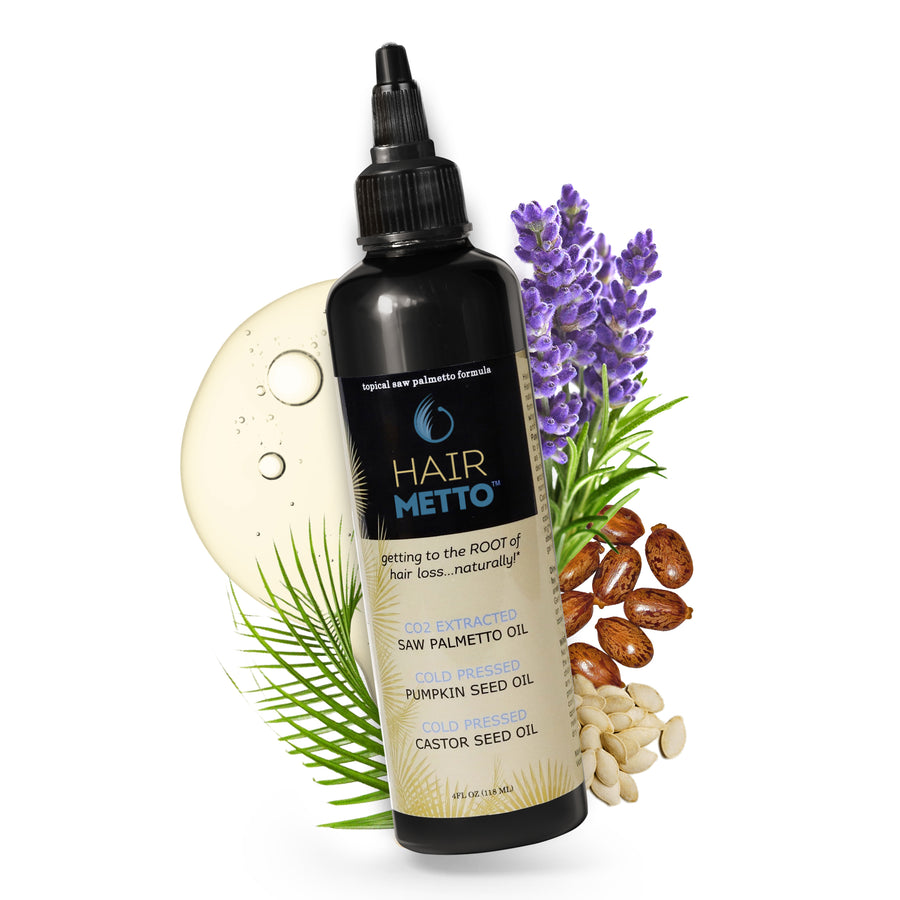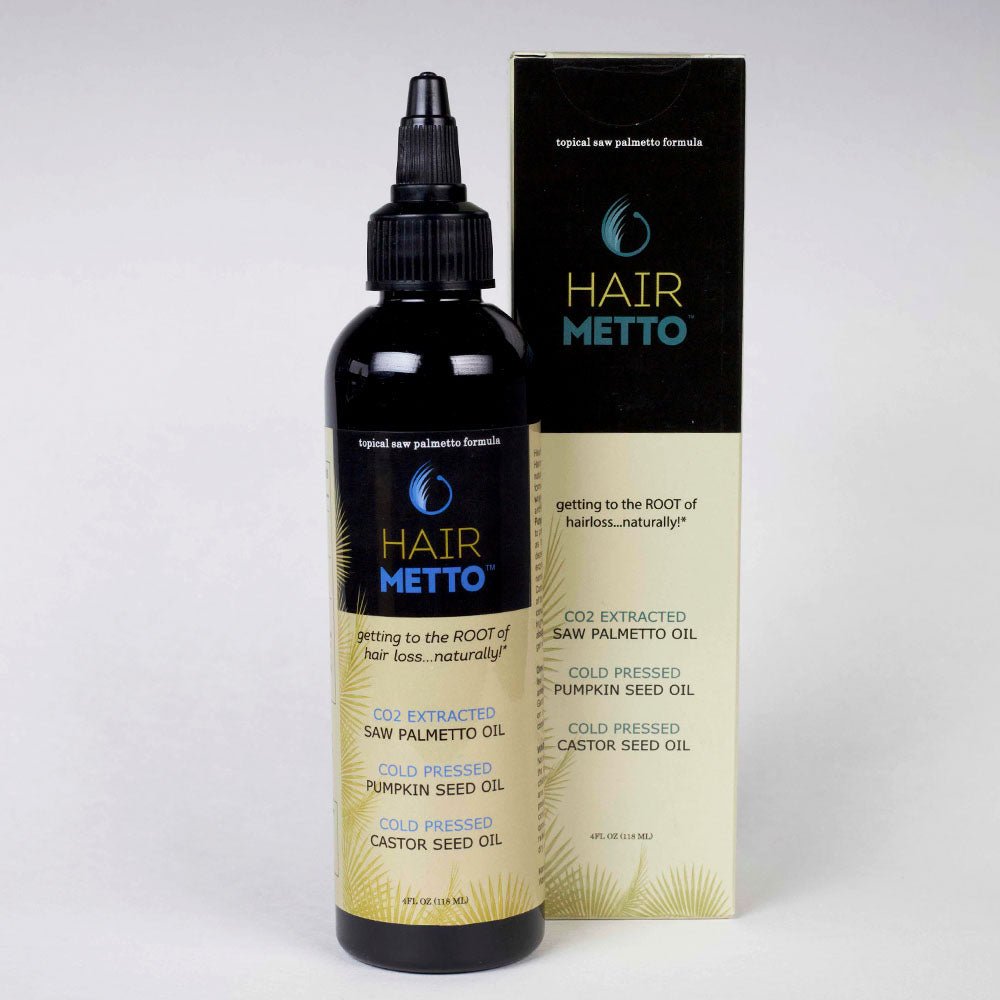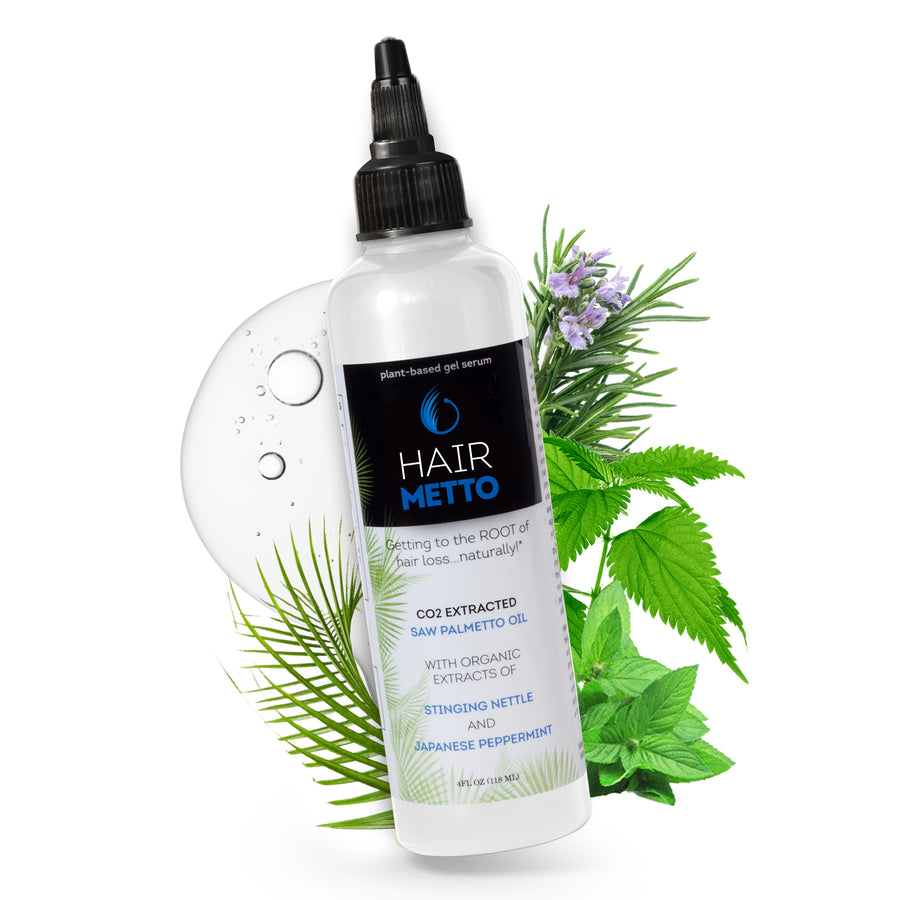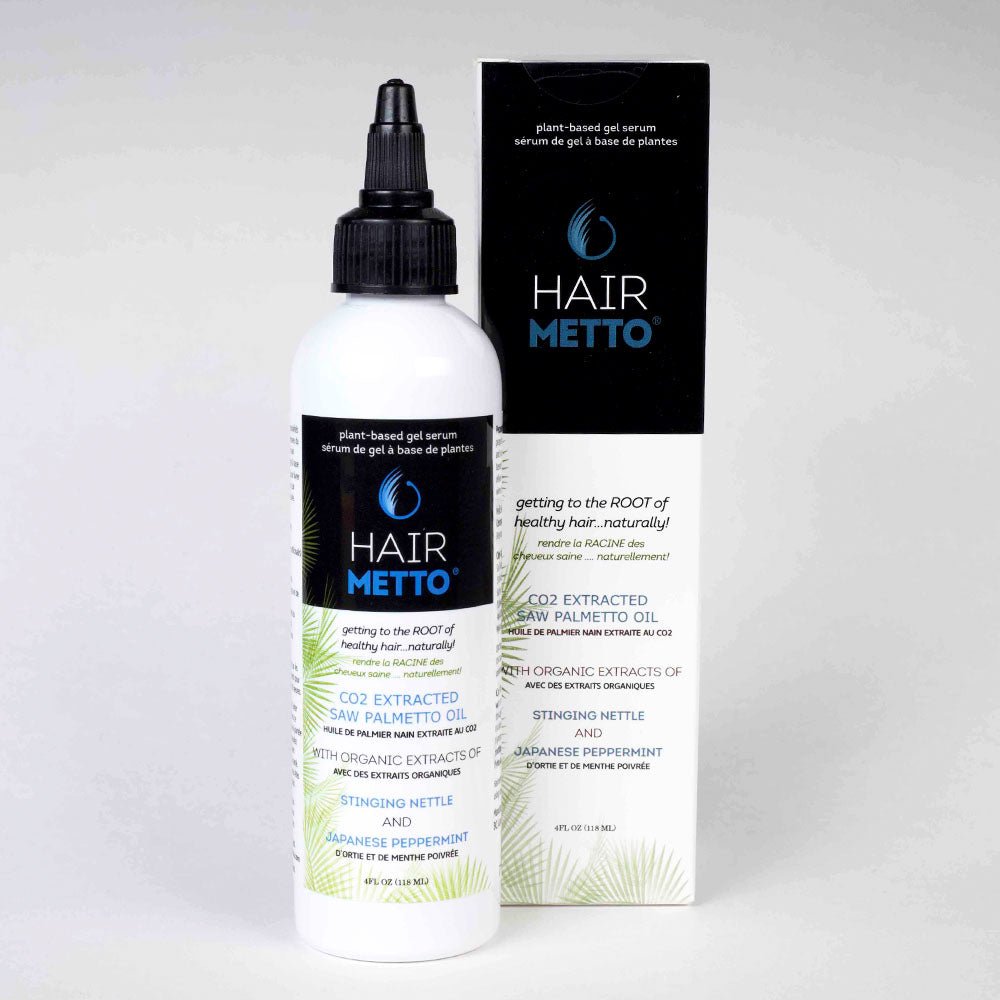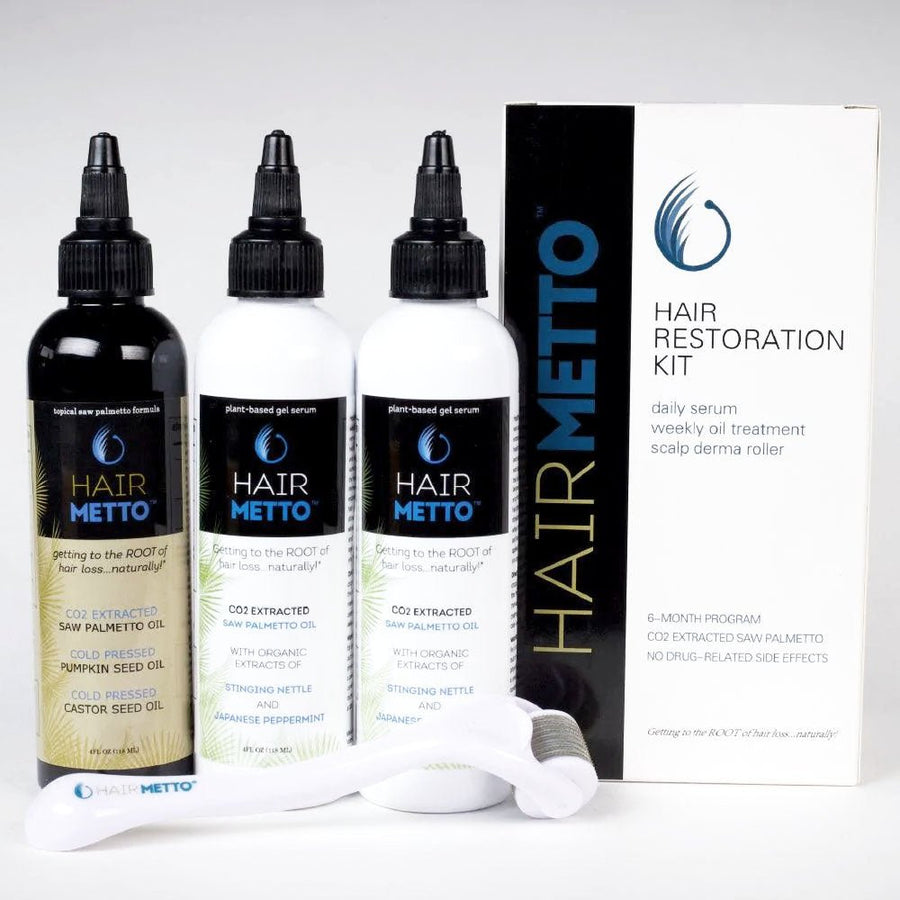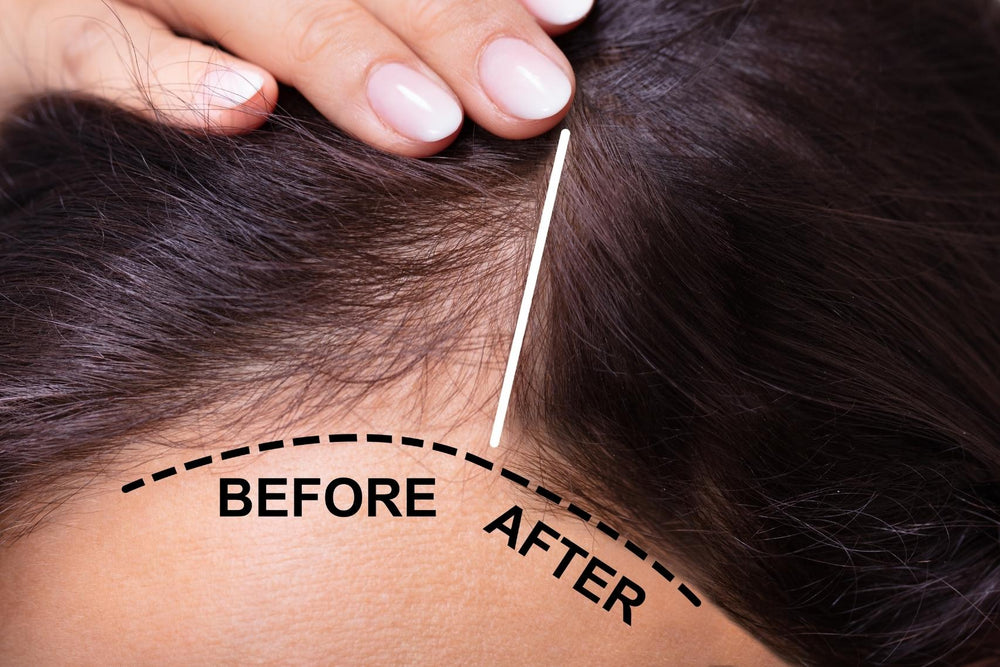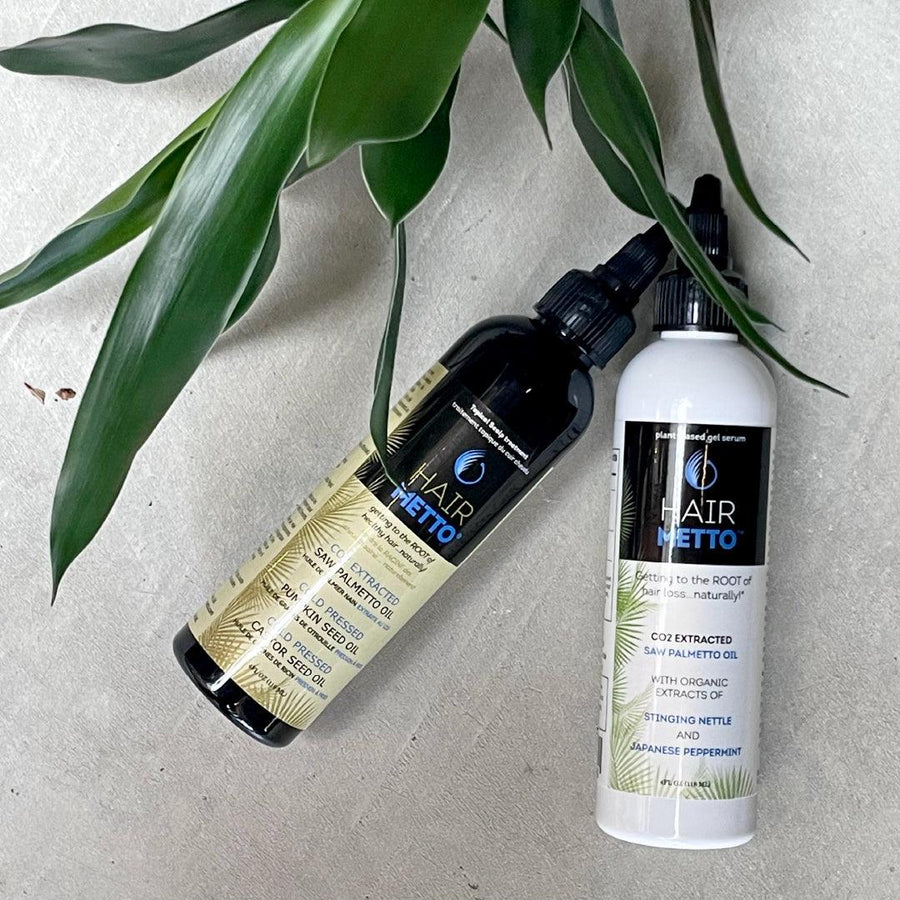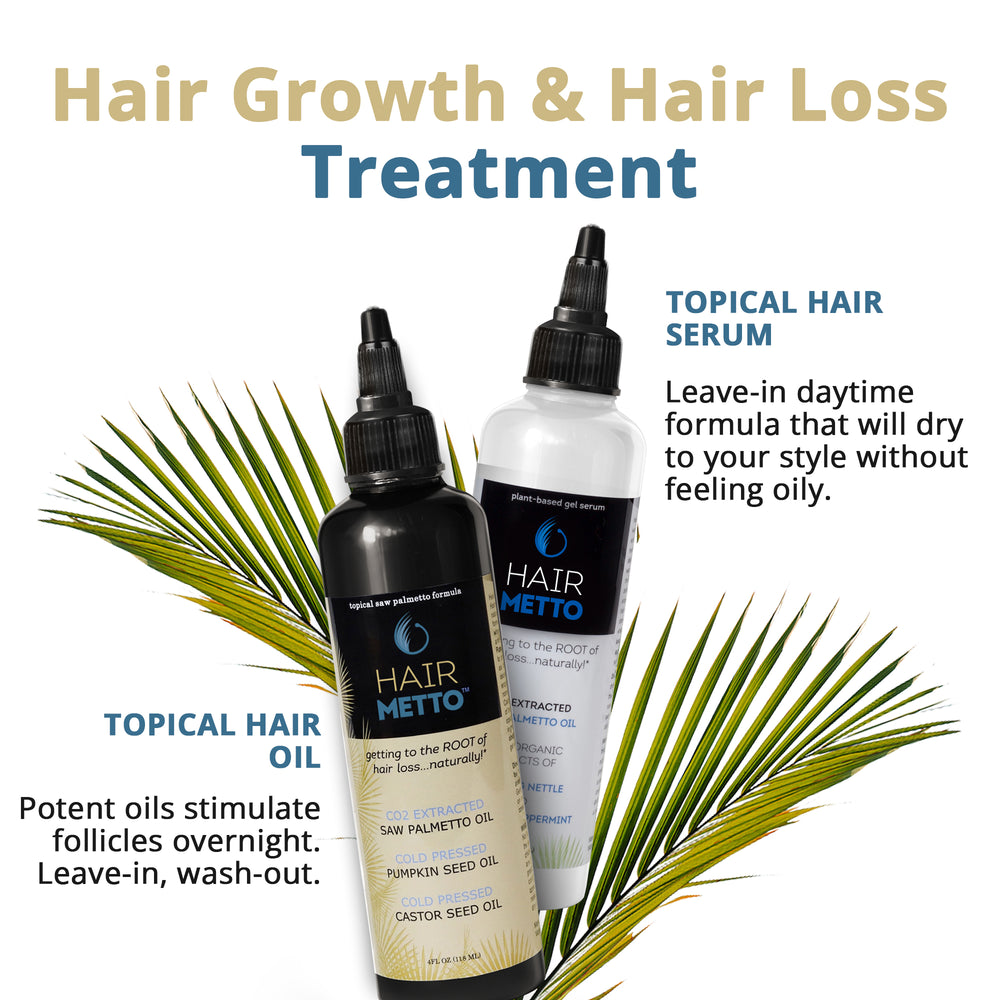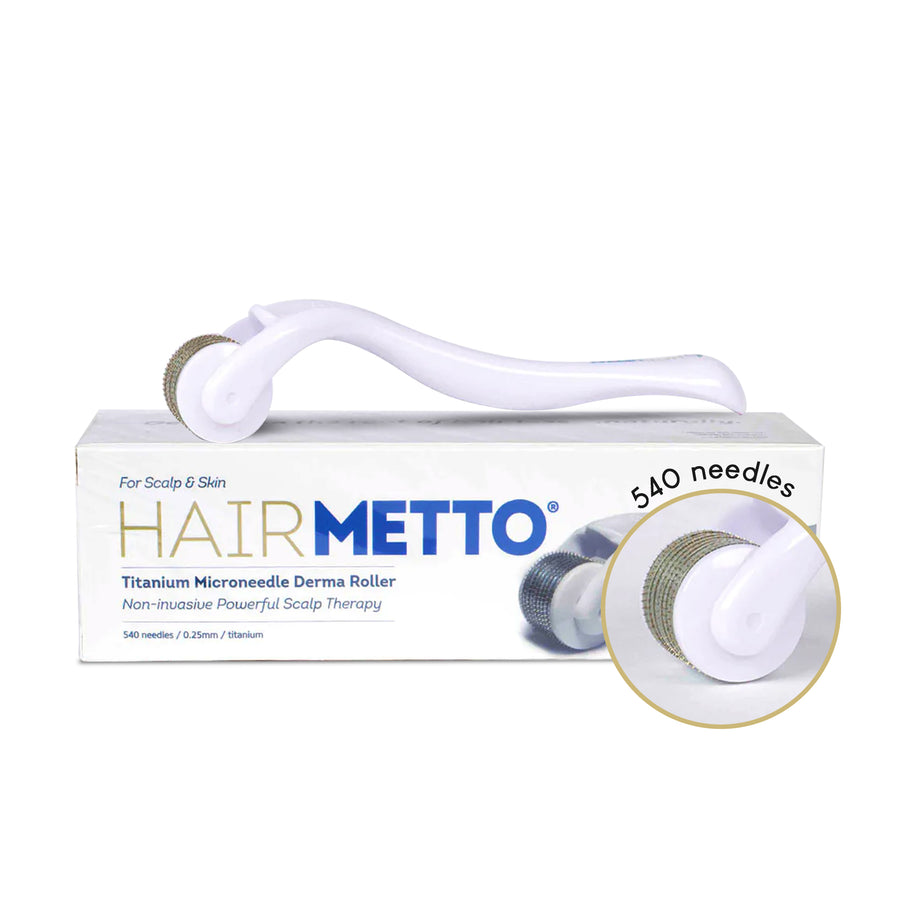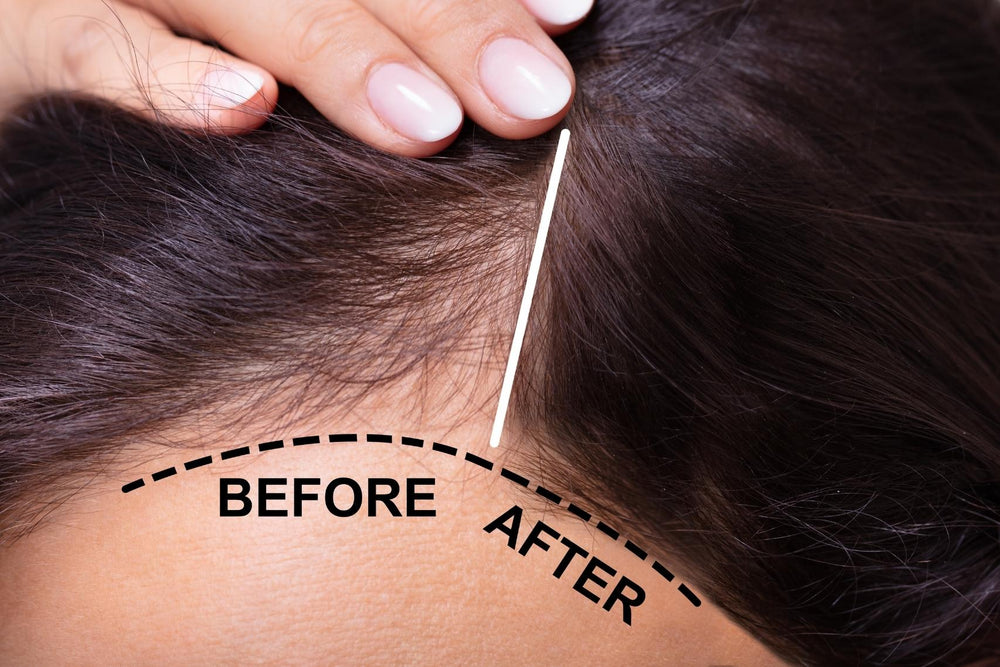Treatment for Hair Loss in Women
As scary as telogen effluvium might be, the good news is that it’s usually temporary. According to the National Library of Medicine, this type of non-scarring, diffuse hair loss is usually resolved in about 6 months. Eating nutritious food, staying hydrated, sleeping well, and maintaining daily activity all support healthy regrowth. Supplementing a nutritious diet with oral vitamins such as Vitamin B12, Iron (if deficient), biotin and fish oils also serves to nourish your cells. The application of topical nutrients is also popular. Saw palmetto oil for hair loss and Pumpkin Seed oils are rich in antioxidants and support both men's and women's scalp health.
GRADUAL HAIR THINNING IN WOMEN
Hair thinning in women often occurs with increasing age, especially at menopause. This is because hormone levels are not as balanced as they once were. Testosterone is an androgen in women as well as men. While it is true that women have much lower testosterone, the slightest reduction in estrogen will give testosterone the advantage.
As we age, our ovaries do not produce the amounts of estrogen as when we were younger. As estrogen decreases, testosterone is now noticeably higher. Testosterone then binds to receptors and converts to a by-product called DHT. DHT attacks the hair follicles, gradually weakening the root, and the hair falls away. This process happens slowly and almost imperceptibly.
Even younger women with thyroid issues notice hair fall. Women diagnosed with PCOS (polycystic ovarian syndrome) also experience hair loss in various places on the scalp. PCOS causes extra androgen production in women, which can cause the scalp hair to start to thin.
Anti-androgen drugs are often prescribed because these are US FDA-approved. Among them is minoxidil – the only FDA-approved drug for treating female pattern thinning. However, many experts don’t recommend these drugs due to their side effects.
Many women prefer to go the natural route instead. Supplements like zinc, biotin, vitamin D and saw palmetto extract are extremely helpful in promoting a healthy scalp.
How Zinc Helps with Hair Growth
According to a 2016 study* those with PCOS who used 50mg of zinc supplementation daily saw beneficial effects on their hair loss. Zinc builds and repairs hair tissues, most importantly, the roots. Oils are necessary for scalp health, and zinc assists in this.
Its deficiency can lead to hair loss and thinning. Zinc is not produced within the body naturally, so it needs to be consumed – either with zinc-rich foods or oral supplementation. Women need about 8mg of zinc each day. Foods containing zinc are seafood, animal protein, soy, dairy and almonds.
How Vitamin D Helps with Hair Growth
Vitamin D influences over 200 genetic switches, so no discussion of health can ignore its importance. Since it is required for healthy cell production, vitamin D affects many parts of the body, including the skin and hair. Vitamin D is known to play a role in creating new hair follicles so that deficiency may impair hair growth.
Aside from being necessary for hair growth, there is some evidence that a deficiency in vitamin D could be implicated in hair loss. For one thing, extreme vitamin D deficiency is linked to alopecia areata (an autoimmune condition causing patchy hair loss, and, ultimately, total body hair loss). (Br J Dermatol. 2014 Jun;170(6):1299-304. Vitamin D deficiency in alopecia areata. Aksu Cerman A, et al.)
Other studies have shown vitamin D deficiency to play a role in hair loss in women who do not have the autoimmune condition, alopecia areata. (Skin Parmacol Physiol. 2013;26(2). Serum ferritin and vitamin d in female hair loss: do they play a role? Rasheed H, et al.)
No direct links between vitamin D deficiency and hair loss in men were found during this research. Still, vitamin D is perhaps the single most important nutrient to supplement with.
How Biotin Helps with Hair Growth
A 2015 study found that taking a marine protein supplement containing biotin for 90 days resulted in significant hair growth. Biotin(B7) stimulates keratin production in hair and increases the rate of follicle growth. It does not stay for long in the body. To be effective, it needs to be consumed. According to the National Institutes of Health, the best natural sources of biotin are meat, eggs, fish, seeds, nuts, and vegetables. Oral supplementation is also beneficial.
How Saw Palmetto Extract Helps Hair Growth
Saw palmetto is an ancient health remedy that blocks the effects of androgens. For this reason, saw palmetto is used widely for women who have noticed female pattern baldness due to hormonal imbalances. For more information on how saw palmetto works for thinning hair and hair loss, see this blog.
Saw palmetto can be taken in many forms, including external (topical) application. Properly sourced CO2-extracted saw palmetto is highly potent in containing 85-95% essential fatty acids vital for hair growth. HAIRMETTO topical saw palmetto products saturate the follicles throughout the day or night to feed your roots essential nutrition. See our products here

